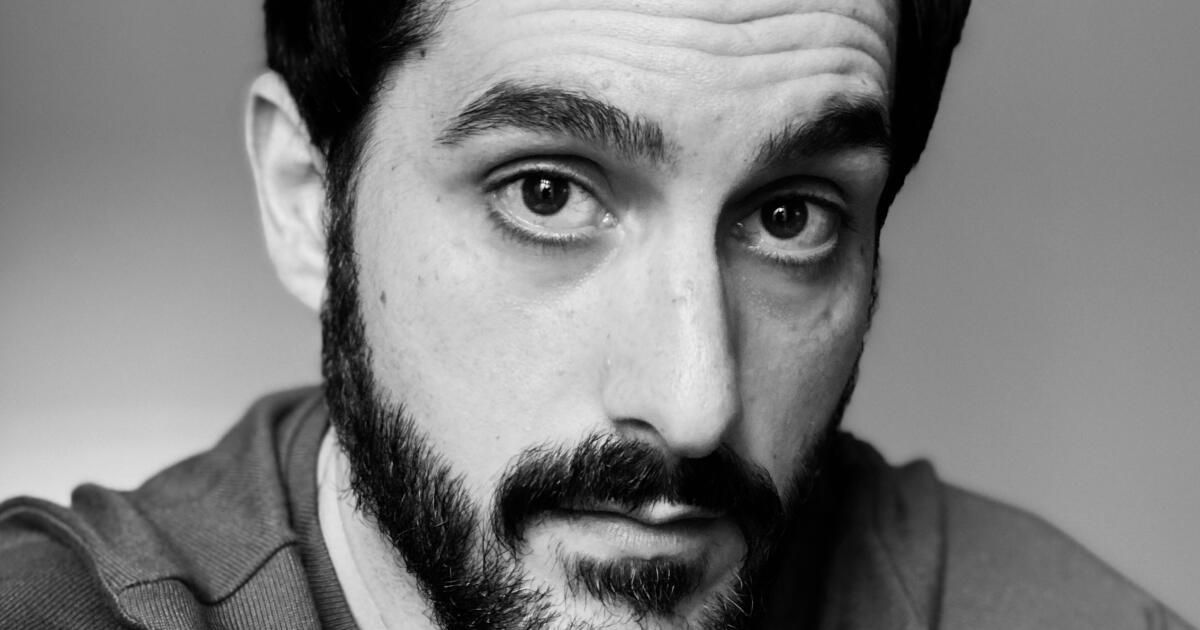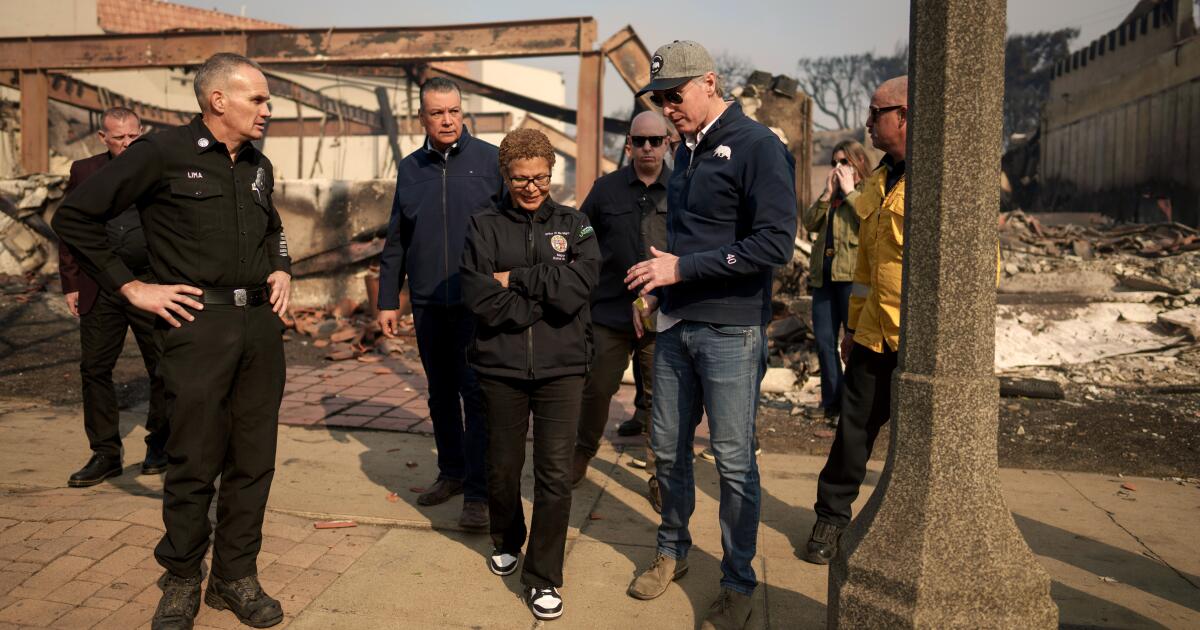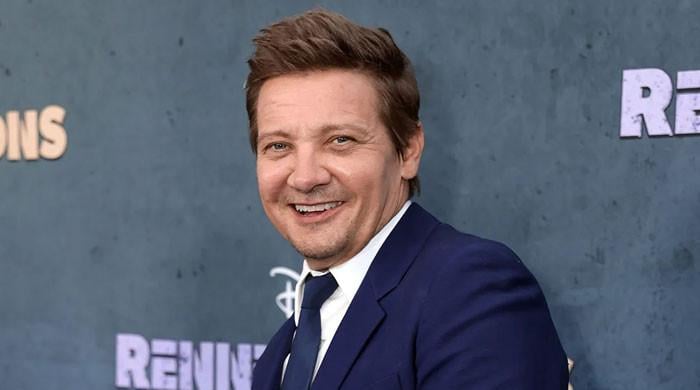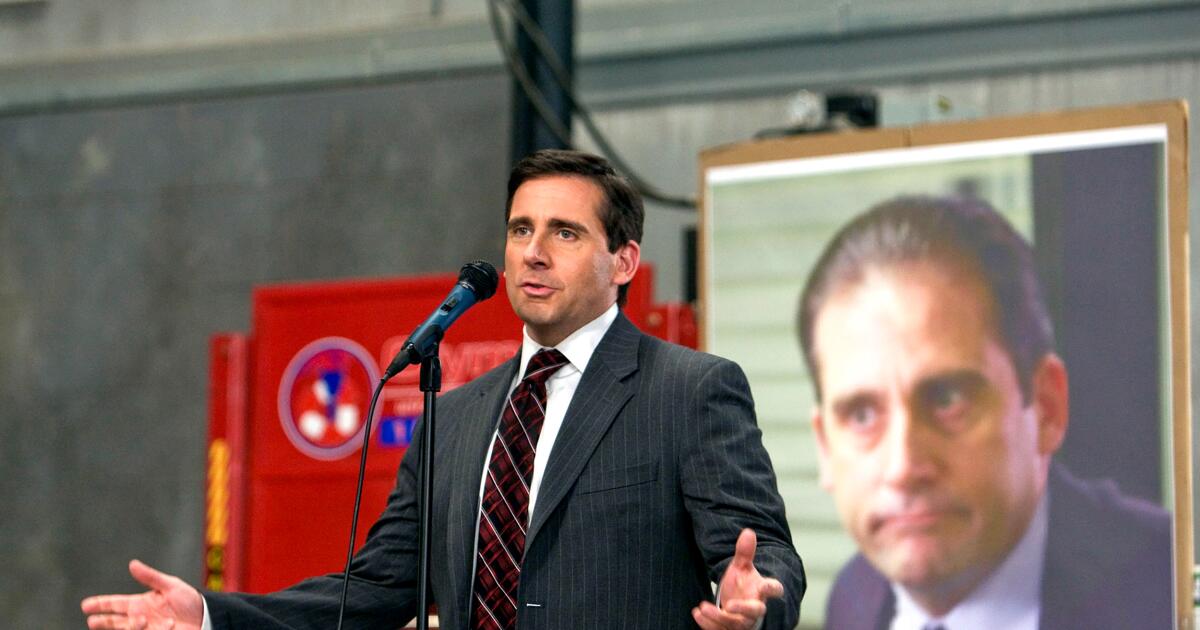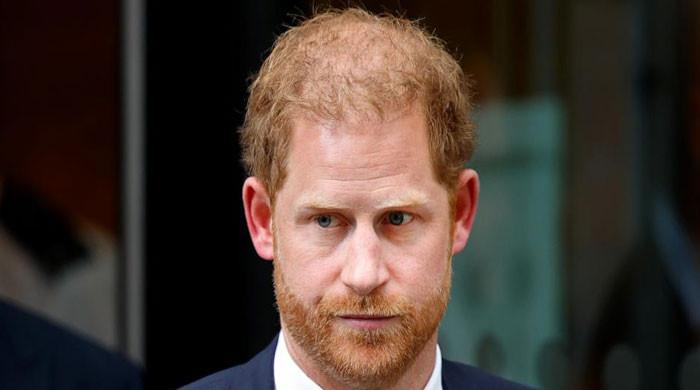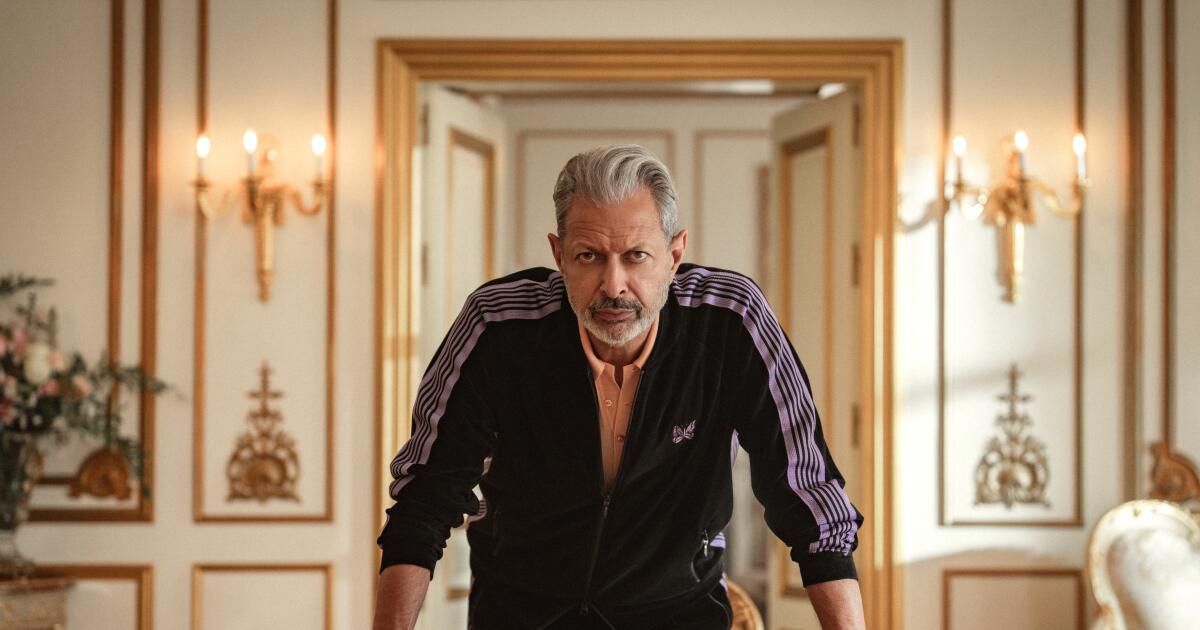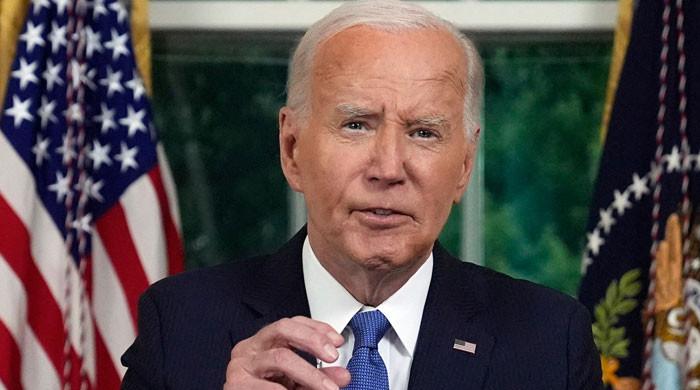In 2013, a group of young people from Georgia, the former Soviet republic in the Caucasus region, attempted to hold a pro-gay demonstration to mark the International Day Against Homophobia in the conservative country. Their efforts were thwarted when a violent mob of thousands of Orthodox counter-protesters attacked them with stones and eggs. More than a dozen people had to be hospitalized.
“I was horrified,” says filmmaker Levan Akin, 44, via Zoom from England. “I thought I should go to Georgia and make a film about this.”
That momentum led to Akin’s second feature, “And Then We Danced” (2019), a much-praised gay romance set in the world of traditional Georgian folk dance. But while the film won awards around the world and represented the director’s native Sweden (where he was born and raised) in a bid for an Oscar nomination, its reception in Georgia’s capital, Tbilisi, was an entirely different matter.
“They had to call in the army and put police in every screening room,” Akin recalls of the risks taken by viewers. “They created a ‘corridor of shame’ that people had to walk through to see the movie, like in ‘Game of Thrones,’ where they threw things at Cersei’s character.”
The film was only shown for three days before the government decided to pull it from cinemas, arguing that sending military personnel to each screening was too costly. In the end, it found an audience in Georgia through illegal downloads.
“He thinks, ‘I’m gay, but I love Georgian dance, but somehow they’re not compatible,’” Akin says, speaking from the perspective of his main character. “‘Who has appropriated that? Who are these traditionalists to decide what I can do? It’s my country too, even if I’m gay.’”
Lucas Kankava and Mzia Arabuli in the film “Crossing”.
(ozan acid)
Akin’s latest film, “Crossing,” which opens in theaters Friday, is a moving tale of an odd couple that continues her exploration of the experiences of queer people in that part of the world. In it, Lia (Mzia Arabuli), a headstrong, single Georgian woman whose sister has just died, goes in search of her adult trans niece, Tekla, who has moved to the cosmopolitan city of Istanbul in neighboring Turkey. Achi (Lucas Kankava), an aimless young man from Lia’s coastal Georgian town, comes along for the ride, escaping his own abusers.
Faced with a language barrier (Achi speaks a few words of English, but no Turkish), the two unlikely partners scour the streets for clues to Tekla's whereabouts, meeting other trans women in the process.
“The women around us are affected by our queer struggle and they also start to see their own place in this man’s world differently,” Akin says. “And I thought that was fascinating.”
Akin has always seen Georgia as a place of passage. For him, it is a complex bond. When he was a child in the 1980s, growing up in Tumba, Sweden, his immigrant family would visit every summer to see relatives. One year, his father, a travel agent, enrolled Akin and his sister in a month-long camp (the Soviet version of the Boy Scouts or Girl Scouts, he notes) where they sang songs about the glories of communism.
After the fall of the Soviet Union, the country went through a civil war that kept Akin and his loved ones apart for a few years. Then, neoliberalism took over. “They built a statue in honour of Ronald Reagan and there is a George W. Bush Avenue,” Akin says, amused.
Unfortunately, the country is now more politically aligned with Russia. “Georgia is changing all the time,” he says. “It’s hard to keep up, and every time I do something there, I have to reacquaint myself with the country.”
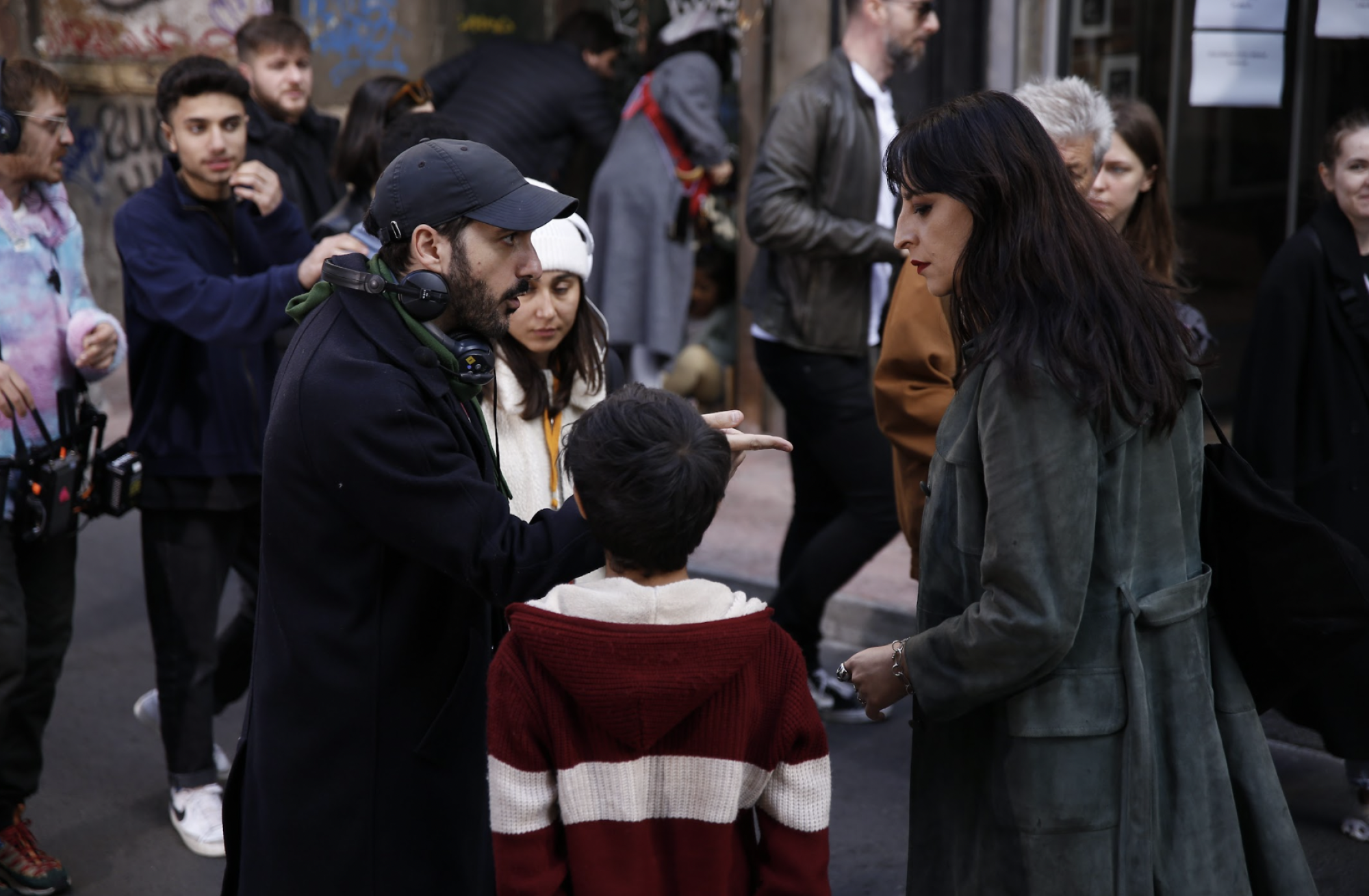
Levan Akin, left, on location for “Crossing.”
(Haydar Tastan)
But the work of reconnecting and filming on location — even at the risk of public outcry and censorship — is part of what motivates him. After directing for a few years in Sweden, both on television and in his own films, Akin came to a personal crossroads and wondered what his purpose as an artist was. Taking advantage of his status as an outsider from a more tolerant country, he decided to make films in Georgia.
“We spent a number of years making these kinds of films and I felt strongly that I wanted to make things that were meaningful to me on a personal level and where the process of working was important,” Akin says. “It can be very confusing. ‘What is my place in this country that I love?’ is something I think about a lot and it comes through in my films.”
Taking on a queer-themed play in a country like Georgia is a dangerous venture. Akin describes it as a “guerilla effort.” For “And Then We Dance,” his crew had to lie about the plot to secure locations and avoid attention. Still, when details became known, the crew received death threats.
Akin works with local Georgian production companies who help him with logistics. Most of his actors are first-timers. “Crossing” was a relatively simpler project, requiring only five days of shooting in Georgia, with the rest done in Turkey.
Following the rejection of “And Then We Danced,” Akin sought to tell a story about forgiveness from the perspective of those who don’t identify as queer but whose lives are still affected by rigid gender norms.
“All the main characters in Crossing are trying to find their own place in this very patriarchal society,” Akin explains. “I wanted to make a film whose theme was: no matter what generation you’re from, love is love.”
Lia is an unmarried, childless woman in a culture that expects both of these things from all women. Achi lives in a toxic and abusive environment under the thumb of her brother. A third character, Evrim (Deniz Dumanli), a Turkish trans woman, faces male bureaucracy while working for a nonprofit serving vulnerable queer people.
At the premiere of Crossing during the Berlin International Film Festival in February, Akin met Georgians who had braved the crowds to see And Then We Dance in Tbilisi. “It was very moving for me to finally be able to have that dialogue with them,” he says.
Akin was able to make “And Then We Danced” and “Crossing” in Georgia because their funding came from Sweden and France. But now, a worrying “foreign agent” law has been passed in Georgia, sparking weeks of street protests. Under the new law, any organization or media company with more than 20% of its funding coming from outside Georgia would effectively be considered an entity acting in the interests of foreign powers and would therefore be subject to harsher audits and fines.
“This is a way to stop [organizations] “There are bills dealing with LGBTQI+ issues, women’s issues, and anything they consider progressive,” Akin explains. “It’s a similar bill to the one they have in Russia.”
With “Crossing,” Akin did not expect such a strong reaction. Unlike his previous film, it did not deal with any traditional aspects of Georgian culture. But as soon as the film premiered in Berlin, the local press began giving it negative reviews. Akin attributes this to the upcoming parliamentary elections, scheduled for October, as the right wing is trying to portray his work as incendiary.
“We have suspended the film’s release in Georgia,” he says, hoping that the climate will improve after the elections. “We don’t want to be part of this circus.”
Last month, the ruling Georgian Dream party introduced an “anti-LGBTQ+ propaganda bill,” as Akin calls it, which would, among other harmful policies, ban artworks like his. But as dire as the situation is in Georgia, the filmmaker warns that queer rights are also under threat in the West.
“Unfortunately, we currently have a party in Sweden that wants to ban Pride flags and it is a fairly big party,” she says of the Sweden Democrats party.
Akin has at least one more project he would like to film in Georgia, a story he describes as a bridge between his life as a Swedish-Georgian artist.
“It’s about West and East and this idea of wealth disparity and white guilt in connection with Georgia,” he says.
Like his characters, determined to push on amid a roar of intolerance, he seems undaunted by what lies ahead.
“Sometimes the opposition is stronger,” Akin says, “but it is not necessarily the largest.”

